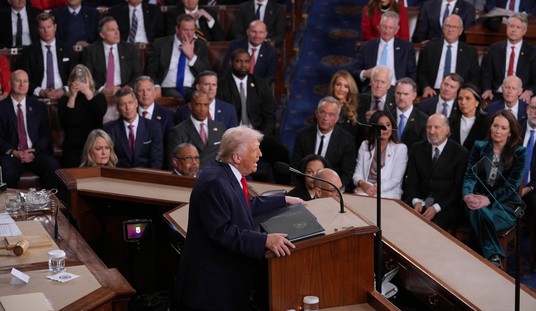A new poll claims that nearly 1 in 2 U.S. voters believes that the nation's best days are behind it. This is the highest level of whining on this question in a year, according to Rasmussen Reports.
How is it possible that so many people believe the next generation will be in worse shape when nearly every positive indicator of the human experience is on a positive trajectory -- from our standard of living to our life expectancy to our technology to the health of the environment?
Perhaps there is a nebulous understanding of what "better" is supposed to mean these days. These days, progress signifies a guilt-ridden retreat from the very things that permit one generation to live better than the one preceding it, namely lots of awesome, new, unnecessary stuff.

Our parents thought it might be "better" to move from urban cores to well-heeled suburban neighborhoods, where they could wander comfortably in large homes while their three or four kids played in oversized yards.
Today their ilk would be considered sprawl-escalating, population-increasing eco-criminals who grill methane-producing meat on weekends and drive (soon-to-be-outlawed) carbon-spewing monstrosities to work on the weekdays.
Enlightened people generally concur that Americans are too greedy, too fat, too pushy, too competitive, too consumer-conscious, too stupid and definitely too self-absorbed. We take too much from the world, and we give too little.
In my own forward-looking neck of the woods, a man never is judged by the size of his wallet, only by the number of government-subsidized solar panels he can procure. Morality is not measured by good deeds, but by how many finger-wagging, holier-than-thou bumper stickers can fit on your Smart car.
Recommended
Because, you see, in the end, "better" means pretending you want less.
It's not just adults. In 2006, a poll by the Horatio Alger Association, a nonprofit education group, found that only 53 percent of students ages 13 to 19 were optimistic about the future of the country -- a 22 percent drop from 2003.
It is depressing to see children, whose cell phones utilize technology that eclipses the collective advances of entire cultures, down on their futures.
Now, my generation didn't grow up with a spine-stiffening war or a Great Depression, but we did have to deal with brown-carroty shag rugs, only three channels, stagnation and Disco Duck, and we were, I believe, still pretty jacked about the future's promise.
Today my 7-year-old can't take a bath without reliving the plot of "Crime and Punishment" because she believes her modest water consumption is knocking off Mother Earth.
Maybe children are confused about what "better" is supposed to mean, as well. We can forgive them, though, as they've been fed a steady diet of model-projection Armageddon their whole lives. One poll claims that 1 in 3 children ages 6 to 11 fears that the Earth will be destroyed by the time they grow up.
As for adults, we now can witness fits of schadenfreude over capitalism's "failure" every day -- as if a recession can undo centuries of prosperity. Some actually view the contraction as a positive recalibration of our economy, which is, in their minds, always running on "imagined" prosperity.
We can use less, they say. Less energy. Smaller houses. Fewer profits. Fewer vacations. ...
... Way to dream big!
One thing we've relearned recently is that "hope" can't be pinned to dependency, bureaucracy and demanding less. Thankfully.
It is silly to believe that the next generation magically will transform human nature and settle for less. Nor is there any historical precedent that leads us to believe the economy will shrink for good -- unless, of course, it is forced to.
This next generation almost certainly will live through a few glorious bubbles, followed by a few scary recessions. Yet just as certainly, they will live "better" lives than we do.
























Join the conversation as a VIP Member